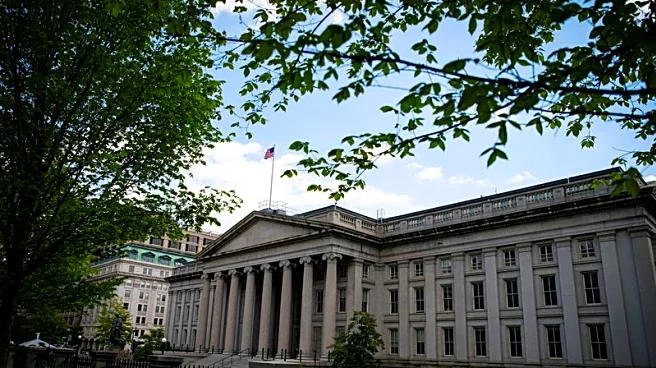What's Happening?
Electronic Arts (EA) has confirmed a $55 billion deal to go private under new ownership, including Saudi Arabia's Public Investment Fund, Affinity Partners, and Silver Lake. This development has prompted U.S. Senators Richard Blumenthal and Elizabeth
Warren to express concerns over potential foreign influence. They have co-authored a letter to EA CEO Andrew Wilson and Treasury Secretary Scott Bessent, questioning whether Saudi Arabia's involvement could compromise EA's editorial independence and pose national security risks. The Senators highlighted concerns about Saudi Arabia's access to sensitive personal information from EA's users, its influence over AI technology development, and the company's product design and direction.
Why It's Important?
The involvement of Saudi Arabia in EA's ownership raises significant concerns about foreign influence in the U.S. technology and entertainment sectors. The Senators' concerns reflect broader apprehensions about national security, particularly regarding the handling of sensitive user data and the development of AI technologies. Saudi Arabia's investment in video game companies is seen as part of a strategy to improve its international image, despite allegations of human rights violations. The scrutiny from U.S. lawmakers underscores the potential impact on industry standards and the safeguarding of user privacy.
What's Next?
The deal's approval process will likely involve further examination by U.S. regulatory bodies, including the Treasury Department. Stakeholders in the gaming industry and privacy advocates may also weigh in on the implications of foreign ownership. The Senators' letter could prompt additional legislative or regulatory actions to address foreign influence in U.S. companies, particularly those handling sensitive data. EA's response to these concerns and its future operational strategies will be closely monitored.
Beyond the Headlines
The situation highlights the ethical and legal dimensions of foreign investments in U.S. companies, especially those with significant user bases and technological capabilities. It raises questions about the balance between global investment opportunities and national security priorities. The deal could set a precedent for how similar transactions are scrutinized and regulated in the future.

















